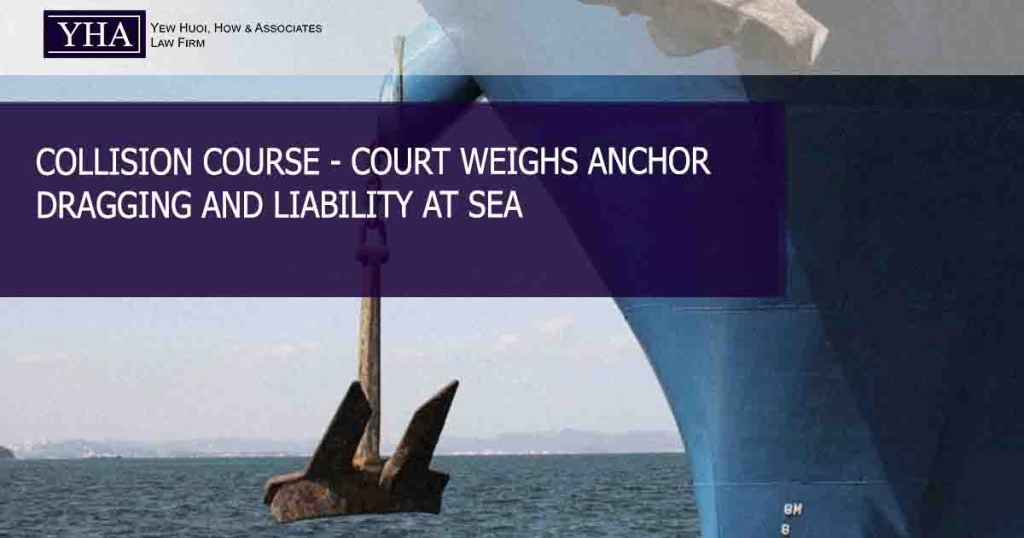Summary and Facts
The case The Kiran Australia v Belpareil [2024] 2 Lloyd’s Rep 323 examines a collision between two vessels, the Kiran Australia and Belpareil. The collision resulted from Belpareil’s anchor dragging, which led to a loss of control over its movements and ultimately a collision with Kiran Australia. The court evaluated each party’s liability, apportioning fault based on the actions and omissions of each vessel.
Key Issues
- Negligence Due to Dragging Anchor: Was Belpareil negligent because its anchor dragged?
- Timely Warnings and Response: Did Belpareil fail to issue timely warnings and respond adequately?
- Apportionment of Fault: Should fault be weighted in favor of Kiran Australia despite its limited evasive actions?
Court’s Findings
- The court found Belpareil primarily at fault for failing to rebut the presumption of negligence associated with dragging anchor. Maritime law often presumes negligence when a vessel’s anchor drags unless unavoidable circumstances can be demonstrated, which Belpareil could not establish.
- Belpareil also failed to meet its duty to issue prompt warnings to Kiran Australia or to seek tug assistance quickly. These delays substantially contributed to the collision and affected the court’s apportionment of liability.
- Although Kiran Australia did attempt evasive action, its limited response was hampered by Belpareil’s delays and lack of communication. The court assigned 70% of the fault to Belpareil and 30% to Kiran Australia, placing greater responsibility on the vessel that failed to manage the potential hazard.
- Kiran Australia was apportioned 30% of the fault because it had a duty to take reasonable evasive action. Despite its attempts to avoid the collision, the court found that these measures were insufficient.
Practical Implications
- This case highlights the stringent standards of vigilance and communication expected to prevent maritime collisions.
- Vessel operators should prioritize actively monitoring anchor stability, especially in challenging weather or currents, as failure to do so can result in a presumption of negligence and increased liability.
- The ruling underscores the need for timely communication with nearby vessels and immediate action, such as engaging tug assistance when needed.
- Vessel owners must ensure clear protocols for managing anchor dragging and train crews to prioritize swift communication in emergency situations.
Conclusion
This case underscores vessels’ responsibilities in managing anchor dragging risks and highlights the critical role of timely communication to minimize collision risks.

